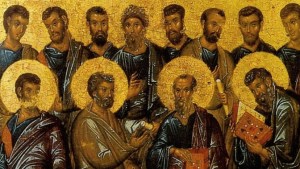In the Catholic Church, there are many foreign terms that are used to describe essential aspects of the Catholic faith. One of them is “dogma,” a word that comes from the Greek dogma or dokein.
Initially this word was used, as the Catholic Encyclopedia describes, “in the writings of the ancient classical authors, sometimes, an opinion or that which seems true to a person; sometimes, the philosophical doctrines or tenets, and especially the distinctive philosophical doctrines, of a particular school of philosophers (cf. Cic. Ac., ii, 9), and sometimes, a public decree or ordinance.”
However, over time the Church adopted this word to signify “a truth appertaining to faith or morals, revealed by God, transmitted from the Apostles in the Scriptures or by tradition, and proposed by the Church for the acceptance of the faithful.”
The Catechism of the Catholic Church explains dogma in this way, “The Church’s Magisterium exercises the authority it holds from Christ to the fullest extent when it defines dogmas, that is, when it proposes, in a form obliging the Christian people to an irrevocable adherence of faith, truths contained in divine Revelation or also when it proposes, in a definitive way, truths having a necessary connection with these” (CCC 88).
Dogmas are truths of the Catholic faith that are objectively true, finding their ultimate source in God’s revelation. They are doctrines of the Catholic faith that the faithful are exhorted to believe and assent to, such as the dogma that Christ is the head of the Church or that God is a unity of three persons. The Catechism of the Catholic Church is a book that contains all of the dogmas of the Catholic Church.
These truths form the foundation of the Catholic faith and “are lights along the path of faith; they illuminate it and make it secure. Conversely, if our life is upright, our intellect and heart will be open to welcome the light shed by the dogmas of faith” (CCC 88).

Read more:
What did Christianity look like before the Bible?

Read more:
Where did the Bible come from?

